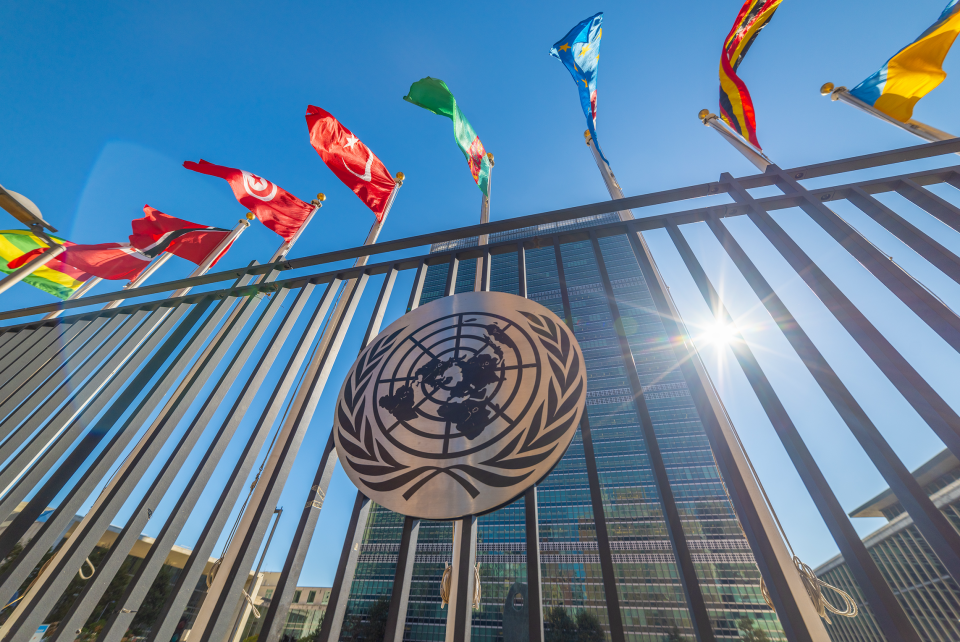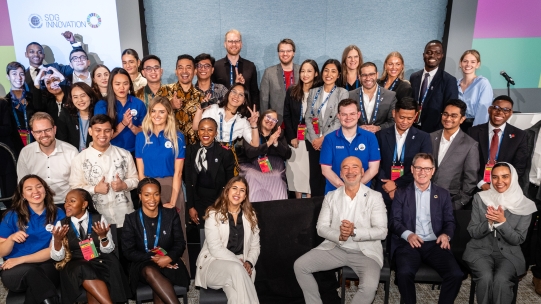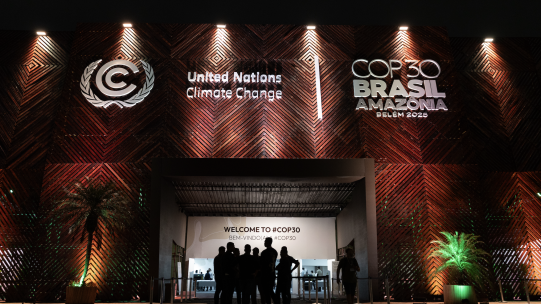Four essential reports for business leaders at the UN High-level Week
Read more

Leaders from across industries and geographies will gather in New York this week to exchange ideas and drive solutions during the 80th United Nations General Assembly.
As the world’s largest sustainability initiative, with over 20,000 participating companies worldwide, the UN Global Compact is releasing four new reports on leadership, governance, supply chains and human rights that will shape the sustainable business agenda this week and into the future.
Rooted in the initiative's Ten Principles, these reports offer timely insights at a pivotal moment for global business.
Our reports every business leader will want on their radar during UNGA80:
2025 CEO Study: Turning the Key
Eighty-eight per cent of CEOs believe that the business case for sustainability is stronger than it was five years ago. However, many face pressure from rising political and public scrutiny, raising questions about how to lead publicly.
The UN Global Compact and Accenture partnered to survey and interview CEOs across industries and regions, exploring how leaders respond to urgent opportunities and challenges in advancing sustainability.
The 2025 CEO Study: Turning the Key captures viewpoints and insights from CEOs worldwide on how they are navigating pressures and where they are investing. It highlights five keys they see as critical to unlocking the next era of sustainability leadership:
- Collaborate on regulation
- Harness Consumer demand
- Expand Access to technology
- Upskill for the future
- Lead with Credibility and purpose
Through testimonials and statistical explanations from the highest level of business operations, the report provides an inside look at how CEO perception can change, differ and grow throughout time and in various contexts.
→ Learn more about how other CEOs are thinking and acting: read more in the 2025 CEO Study: Turning the Key.
Legal Insights
Sustainability regulations are evolving rapidly, and the private sector is facing new legal and governance obligations and challenges. From fast-paced directives to fragmented rules and ever-changing policies, the landscape is increasingly complex and multidimensional, creating a sense of disarray.

Produced by UN Global Compact, The Legal Insights Report presents perspectives from a diverse group of leading legal professionals, offering practical guidance and case studies. The report illustrates how risk management must be a key function of governance structures.
Preventive measures rather than reactionary ones must be empolyed to deliver the greatest impact. Through transformational governance, well-informedbusinesses can gain a competitive edge..
→ For more on the critical role of governance in reshaping business, explore the Legal Insights report of the UN Global Compact
Current state of sustainable procurement
Sustainability is a broad topic, and a good place to start is with your company’s procurement operations. Procurement is a powerful lever for change, not only for your business but for building a better world. Incorporating sustainable supply chain practices can reduce company risk, increase brand value by 15 to 30 per cent, reduce supply chain costs by 9–16 per cent and even boost revenue by 5–20 per cent.
The new publication, the Current State of Sustainable Procurement, examines the role of procurement in sustainable business. Featuring practical tools, case studies and expert insights, the report explores how companies are reshaping supply chains to reduce emissions, protect human rights, foster transparency and embed circularity. By aligning procurement strategies with sustainability priorities, businesses can deliver positive impact for people, planet and markets.
Learn more about how your business can advance sustainability through procurement: Discover the Sustainable Procurement report.
Gaining internal support for human rights due diligence and management playbook
Human rights are critical to upholding a sustainable business. The new UN Global Compact playbook, “Gaining Internal Support for Human Rights Due Diligence and Management,” highlights the growing need to secure supply chains and embed business practices that protect the health and well-being of stakeholders.
The playbook provides practical guidance for integrating human rights due diligence (HRDD) across companies and their supply chains. Building on the UN Guiding Principles and insights from the UN Global Compact Think Lab, it translates leading practices into actionable steps that enhance accountability and resilience.

Engaging leadership and linking human rights due diligence to risk management and business continuity reveals a holistic system that includes worker engagement, stakeholder input and collaboration across all relevant parties. Acting on human rights due diligence is both responsible and strategic. Effective companies move beyond siloed approaches by:
- Clarifying roles
- Embedding ownership within core teams
- Facilitating a shared understanding
Ultimately, the playbook equips companies to strengthen alignment and build resilient supply chains that create both sustainable business value and positive social impact.
→ Gaining Internal Support for Human Rights Due Diligence and Management Playbook
For business leaders worldwide, sustainability remains a top priority, now more than ever. The UN High-level week is a moment for many to affirm their support for corporate contributions to the SDGs and global priorities. These four publications from the UN Global Compact equip changemakers with practical guidance and knowledge resources to manage risks and safeguard reputations, anticipate and adapt to evolving regulatory frameworks and capture opportunities for growth and efficiency.
Now is the time to apply these insights to lead responsibly and competitively and help shape a sustainable future.
The inclusion of company names and/or examples is intended strictly for learning purposes and does not constitute an endorsement of the individual companies by the UN Global Compact.


